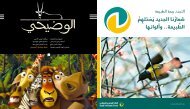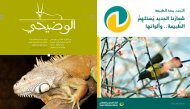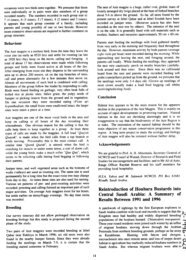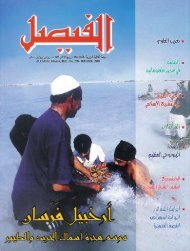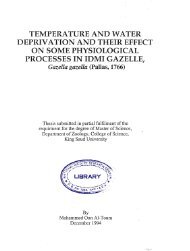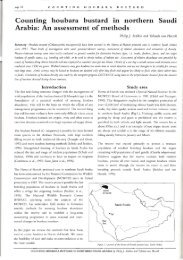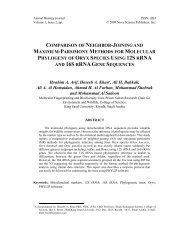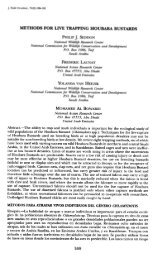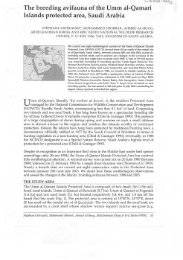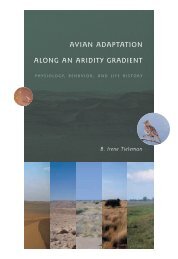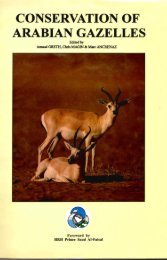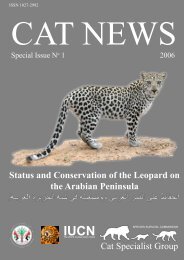The Unfenced Desert Towards a strategy for eco ... - Nwrc.gov.sa
The Unfenced Desert Towards a strategy for eco ... - Nwrc.gov.sa
The Unfenced Desert Towards a strategy for eco ... - Nwrc.gov.sa
Create successful ePaper yourself
Turn your PDF publications into a flip-book with our unique Google optimized e-Paper software.
4<br />
SUMMARY<br />
<strong>The</strong> <strong>Unfenced</strong> <strong>Desert</strong><br />
<strong>Towards</strong> a <strong>strategy</strong> <strong>for</strong> <strong>eco</strong>-tourism development<br />
in protected areas in the Kingdom of Saudi Arabia<br />
Philip J. Seddon<br />
Since 1986 the National Commission <strong>for</strong> Wildlife Conservation and Development (NCWCD) has been<br />
charged with the protection of wildlife in Saudi Arabia, principally through the creation and management of<br />
a network of protected areas. Until recently the NCWCD protected area estate, numbering some 14 sites,<br />
has been managed through a preservationist approach under which local communities and other<br />
stakeholders have been denied access to natural resources, and receive few benefits. <strong>The</strong> NCWD has<br />
acknowledged that this approach is unsustainable, particularly in the face of shrinking <strong>gov</strong>ernment funding.<br />
Eco-tourism, nature-based tourism that protects the environment and enhances the well-being of local<br />
communities, provides a potential solution to these problem. <strong>The</strong> value of both domestic and international<br />
tourism is r<strong>eco</strong>gnised in Saudi Arabia and moves are underway to develop the national tourism industry.<br />
However, tourism development in Saudi Arabia has proceeded without environmental protection<br />
regulations, and negative impacts are already evident in high-use regions.<br />
<strong>The</strong> NCWCD has a window of opportunity in which to develop <strong>eco</strong>-tourism within selected protected areas;<br />
such development should be co-ordinated within a comprehensive <strong>strategy</strong> <strong>for</strong> <strong>eco</strong>-tourism. Such a <strong>strategy</strong><br />
would, inter alia, ensure that the principles of true <strong>eco</strong>-tourism are upheld, and would provide examples of<br />
best practise <strong>for</strong> national planning and regulation.<br />
This study aims to set out a framework <strong>for</strong> strategic planning <strong>for</strong> <strong>eco</strong>-tourism within Saudi Arabia’s wildlife<br />
protected areas, by drawing on a review of the current state of the tourism industry, and on an examination<br />
of public attitudes to outdoor recreation, wildlife and protected areas.<br />
<strong>The</strong> draft framework presented here is built around a vision statement; four objectives relating to<br />
conservation, education, recreation and community participation; seven general principles considering<br />
conservation, public enjoyment and education, rural <strong>eco</strong>nomy, development and design, marketing and<br />
promotion, and research and monitoring; and ten proposed topics of action.




